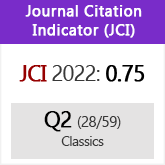Nihil addo, ducas licet. The addictio of the iudicatus in a Novius’ Atellan (fr. 115 Ribbeck3 = 110 Frassinetti)
DOI:
https://doi.org/10.3989/emerita.2022.07.2212Keywords:
legis actio per manus iniectionem, addictio, in diem addictio, uindex, fabula Atellana, Novius, Latin comedyAbstract
This atellan fragment, whose context is the scenic representation of the addictio of an insolvent debtor to his creditor in accordance with the legis actio per manus iniectionem, is analyzed regarding other sources of legal significance that may show the survival of this personal execution procedure in the s. I BC, as well as with other passages of the Latin comedy —belonging to Novius himself and to Plautus— in which this legal situation is used as a comic resource. The phrase nihil addo is intentionally ambiguous because it may be understood as «I say nothing more», but also as «I do not pay a larger sum», either because the character who pronounces it has mistakenly assumed that it is an auction with an in diem addictio agreement, or because he is not willing to act as uindex of the debtor in order to substract him from the addictio.
Downloads
References
von Albrecht, M. (1997): Historia de la literatura romana. Desde Andrónico hasta Boecio, trad. D. Estefanía y A. Pociña, Barcelona.
CIL: Corpus Inscriptionum Latinarum, Berlín, 1863-.
Costa, E. (1890): Il diritto privato romano nelle commedie di Plauto, Turín.
Costa, E. (1893): Il diritto privato romano nelle commedie di Terenzio, Bolonia.
Costa, E. (1927): Cicerone giureconsulto, I, Bolonia.
Crawford, M. H. et al. (1996): Roman Statutes, Londres.
DA: Daremberg, G., Saglio, E. & Pottier, E. (eds.), Dictionnaire des antiquités grecques et romaines, París, 1877-1919.
DKP: Der kleine Pauly. Lexikon der Antike in fünf Bänden, eds. Ziegler, K. y Sontheimer, W., Stuttgart-Weimar, 2013 (= 1964-1975). Domingo, R. (coord.) (1998): Textos de Derecho Romano, Pamplona.
D'Ors, A. (1945): «In diem addictio. Contribución a la crítica de la teoría de las condiciones en derecho romano», Anuario de historia del derecho español 16, pp. 193-289.
D'Ors, A. (1953): Epigrafía jurídica de la España romana, Madrid. EE: Ephemeris epigraphica, Berlín, 1872-1913.
Frassinetti, P. (1967): Atellanae fabulae, Roma.
Guillén, J. (1968): «El latín de las XII Tablas. La semántica», Helmantica 58, pp. 43-111. https://doi.org/10.36576/summa.2730
Iso, J. J. (2002): Cicerón. Sobre el orador, Madrid.
Kaser, M. & Hackl, K. (1996): Das römische Zivilprozessrecht, Múnich.
Krüger, P., Mommsen, Th. & Studemund, G. (1923): Collectio librorum iuris anteiustiniani in usum scholarum, 2ª ed., Berlín.
Leeman, A. D., Pinkster, H. & Rabbie, E. (1989): M. Tullius Cicero, De oratore libri III, 3. Band, Buch II, 99-290, Heidelberg.
Nü.lein, Th. (2007): Marcus Tullius Cicero, De oratore / Über den Redner, Düsseldorf.
Queiroz de Moraes, B. B. (2010): «Plauto e a in diem addictio», Revista general de Derecho Romano 14, pp. 1-19.
RE: Pauly, A., Wissowa, G. & Kroll, W. (eds.), Paulys Realencyclopädie der classischen Altertumswissenschaft, Stuttgart--Múnich, 1894-1980.
Ribbeck, O. (1898): Comicorum Romanorum fragmenta praeter Plautum et Syri quae feruntur sententiae, 3ª ed., Leipzig.
Roby, H. J. (1902): Roman Private Law in the Times of Cicero and of the Antonines, vol. II, Cambridge.
Rodríguez Martín, J. D. (2018): «Derecho griego bajo dominio romano: notas sobre la compatibilidad entre instituciones jurídicas en la Antigüedad», e-Legal History Review 27, pp. 1-38.
Roye, J. P. (1967): «Le problème des dettes à la fin de la République romaine», Revue historique de droit français et étranger 45, pp. 407-450.
Santoro, R. (2009): «Per la storia dell'obligatio. Il iudicatum facere oportere nella prospettiva dell'esecuzione personale», Iuris Antiqui Historia 1, pp. 61-124.
ThLL: Thesaurus linguae Latinae, Leipzig, 1900-.
Wilkins, A. S. (1902): M. Tulli Ciceronis rhetorica, tomus I libros De oratore tres continens, Oxford.
Downloads
Published
How to Cite
Issue
Section
License
Copyright (c) 2022 Consejo Superior de Investigaciones Científicas (CSIC)

This work is licensed under a Creative Commons Attribution 4.0 International License.
© CSIC. Manuscripts published in both the printed and online versions of this Journal are the property of Consejo Superior de Investigaciones Científicas, and quoting this source is a requirement for any partial or full reproduction.All contents of this electronic edition, except where otherwise noted, are distributed under a “Creative Commons Attribution 4.0 International” (CC BY 4.0) License. You may read here the basic information and the legal text of the license. The indication of the CC BY 4.0 License must be expressly stated in this way when necessary.
Self-archiving in repositories, personal webpages or similar, of any version other than the published by the Editor, is not allowed.














